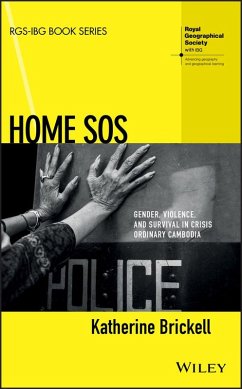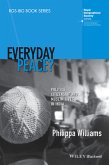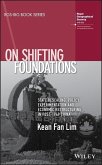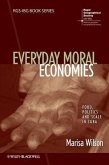Drawing on 15 years of fieldwork and over 300 interviews, Home SOS argues that the home is central to the violence and gendered contingency of existence in crisis ordinary Cambodia. * Provides an original book-length study which brings domestic violence and forced eviction into twin view * Offers relational insights between different violences to build an integrated understanding of women's experiences of home life * Mobilises the crisis ordinary as a critical pedagogy and imaginary through which to understand everyday gendered politics of survival * Positions domestic violence and forced eviction as manifestations of intimate war against women's homes and bodies located inside and outside of the traditional purview of war * Reaffirms and reprioritises the home as a political entity which is foundational to the concerns of human geography
Dieser Download kann aus rechtlichen Gründen nur mit Rechnungsadresse in A, B, BG, CY, CZ, D, DK, EW, E, FIN, F, GR, HR, H, IRL, I, LT, L, LR, M, NL, PL, P, R, S, SLO, SK ausgeliefert werden.
'I read Home SOS while wearing a brand name pullover made by Cambodian women garment factory workers. Brickell's gripping interviews and her bridging domestic violence to gendered forced evictions make me wonder what violences are sewn into my clothes. This is such an innovative, provocative book.'
Cynthia Enloe, Research Professor, International Development, Clark University, USA
'The home, Katherine Brickell argues, is neither a pre-political nor unexceptional place but instead a crucial site where the production and destruction of life is most powerfully expressed. Drawing on empirical evidence on domestic violence and forced evictions in Cambodia, Brickell provides a conceptually rich account of bio- and necropolitical relations that will resonate for all who are concerned with and seek to challenge the interrelated oppressions and violence that are manifest both inside and outside - but always connected to - the home.'
James A. Tyner, Professor of Geography, Kent State University, USA
'This is an important book with theoretical interventions and insights that take us beyond the confines of both Cambodia and Gender as analytic categories, even while remaining solidly grounded in each. Expanding the terms under which we conceive gender-based violence, Brickell puts forward a novel approach to social analysis that I will call a 'home-based' analysis. Through the lens of the home, which she argues is 'intimately connected, rather than sealed off' from the impacts of political processes (p. 8), this book connects the seemingly disparate episodes of forced eviction and domestic violence.'
Courtney Work, National Chengchi University (Singapore Journal of Tropical Geography)
Cynthia Enloe, Research Professor, International Development, Clark University, USA
'The home, Katherine Brickell argues, is neither a pre-political nor unexceptional place but instead a crucial site where the production and destruction of life is most powerfully expressed. Drawing on empirical evidence on domestic violence and forced evictions in Cambodia, Brickell provides a conceptually rich account of bio- and necropolitical relations that will resonate for all who are concerned with and seek to challenge the interrelated oppressions and violence that are manifest both inside and outside - but always connected to - the home.'
James A. Tyner, Professor of Geography, Kent State University, USA
'This is an important book with theoretical interventions and insights that take us beyond the confines of both Cambodia and Gender as analytic categories, even while remaining solidly grounded in each. Expanding the terms under which we conceive gender-based violence, Brickell puts forward a novel approach to social analysis that I will call a 'home-based' analysis. Through the lens of the home, which she argues is 'intimately connected, rather than sealed off' from the impacts of political processes (p. 8), this book connects the seemingly disparate episodes of forced eviction and domestic violence.'
Courtney Work, National Chengchi University (Singapore Journal of Tropical Geography)









